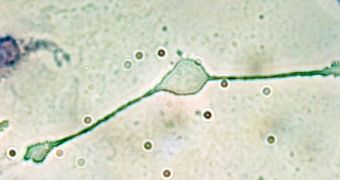A team of investigators at the Yale University announce the successful transplantation of human innate immune cells into mouse models for the first time ever. This achievement will allow researchers to study the origins and progression of human diseases with an unprecedented level of accuracy, thus leading to the development of new cures for multiple disorders.
One of the most important implications of the new study is that any results obtained by studying mouse models will soon be much easier to translate to humans. This degree of compatibility between our species and mice has long been sought after, but never actually achieved. Details of the research appear in the latest online issue of the top scientific journal Nature Biotechnology.
Yale scientists explain that the human innate immune system is the first line of defense our bodies have against invaders, including bacteria and viruses. This system is also responsible for customizing B and T immune cells in a way that allows them to recognize and attack specific pathogens. Many of the things we know about how these cells work have been found through studying lab mice.
However, translating the results in humans has proven to be a cumbersome task, primarily due to the differences between the two species. With the new transplantation technique, scientists will be able to study the actions of actual human cells in mice, thus making any conclusion relevant for our species.
The solution to the problem at hand was focusing on a series of four genes that encode proteins involved in supporting the development of immune cells. These molecules, called cytokines, have widespread influence over the innate immune system. The Yale group combined four genes encoding for these compounds to make the translation of cells from humans to mice easier.
“It was a lengthy effort to express all those human genes in the mouse, and then to transplant a human immune system,” explains Anthony Rongvaux, the first author of the research. The expert holds an appointment as an associate research scientist with the Yale School of Medicine's Department of Immunobiology.
“But in the end, the result is remarkable. This new model will now allow us to address important questions that remain unanswered about how the human immune system fights infection and cancer,” the investigator adds.
The US National Institutes of Health, the Bill and Melinda Gates Foundation, the Baylor Health Care System Foundation, the American Cancer Society, and the Leukemia and Lymphoma Society all provided the funds needed for the research.

 14 DAY TRIAL //
14 DAY TRIAL //